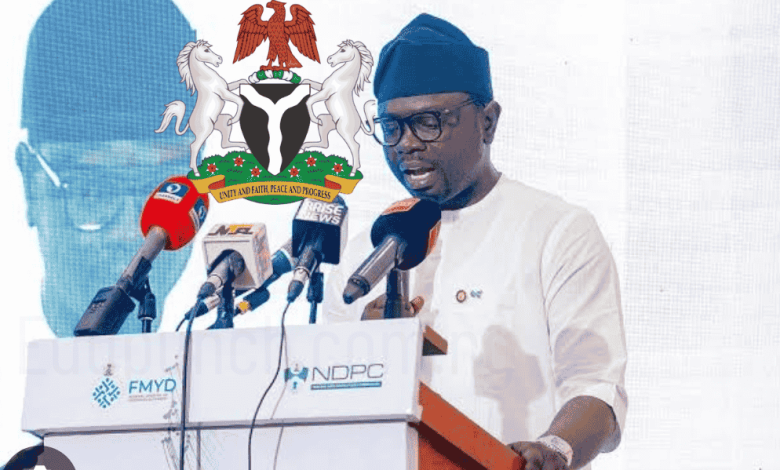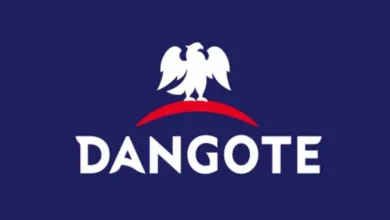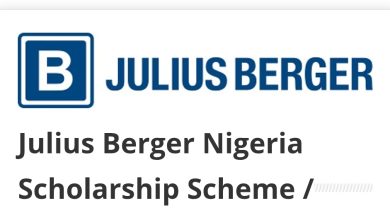FG’s 100,000 Youth Financial Literacy Training Program 2025: Registration Open

Join the FG’s 100,000 Youth Financial Literacy Training Program 2025 and empower yourself with money management and investment skills.
Federal Government’s Financial Literacy Program
The Federal Government of Nigeria has officially launched an unprecedented financial education program designed to equip 100,000 young Nigerians with essential money management and investment skills.
This groundbreaking initiative represents the largest youth-focused financial literacy campaign in the country’s history, aimed at addressing the growing need for economic empowerment among Nigeria’s vibrant youth population.
According to the minister of information, Mrs Omolara Esan, Director, Information and Public Relations, Ministry of Youth Development, in a statement in Abuja, “the programme will be delivered through an engaging Learning Management System (LMS) that integrates gamified learning, simulations, quizzes, and real-world trading scenarios, making financial education accessible and interactive.
Esan said that the in-person training sessions would also commence in Abuja shortly, with expansion to other states.
“The initiative is open to all Nigerian youths, including students, NYSC members, entrepreneurs, job seekers, and young professionals across the 36 states and the Federal Capital Territory.”
Read Also: MTN Foundation Scholarship 2025/2026: Complete Registration Guide & Application Process
About the Financial Literacy Crisis Among Nigerian Youth
Nigeria’s youth demographic faces significant challenges in navigating the complex financial landscape. With over 70% of the country’s population under 30 years old, the need for comprehensive financial education has never been more critical. Many young Nigerians lack access to formal financial education, leading to poor money management decisions, limited investment knowledge, and reduced economic opportunities.
This new government initiative directly addresses these challenges by providing structured, accessible financial education that covers everything from basic budgeting to advanced investment strategies.
The program recognizes that financial literacy is not just about understanding money – it’s about building the foundation for economic independence and national development.
Key Components of the Training Program
The comprehensive training curriculum covers several critical areas:
Personal Financial Management: Participants learn fundamental budgeting techniques, expense tracking, and debt management strategies. This foundation helps young people understand how to live within their means while building wealth over time.
Investment Education: The program introduces various investment vehicles including stocks, bonds, mutual funds, real estate, and emerging opportunities in cryptocurrency and digital assets. Participants gain practical knowledge about risk assessment, portfolio diversification, and long-term wealth building strategies.
Entrepreneurship and Business Development: Beyond personal finance, the training includes modules on business planning, market analysis, and startup financing. This component is particularly valuable in Nigeria’s entrepreneurial economy, where many young people aspire to start their own businesses.
Digital Financial Services: With Nigeria’s rapidly growing fintech sector, participants learn about mobile banking, digital payments, online investment platforms, and financial technology tools that can enhance their money management capabilities.
Implementation Strategy and Reach
The program utilizes a multi-channel approach to reach its ambitious target of 100,000 participants. Training delivery methods include:
- Online platforms offering flexible, self-paced learning modules
- Regional workshops conducted in major cities across Nigeria’s six geopolitical zones
- Community-based training programs reaching rural and underserved areas
- Partnership with educational institutions to integrate financial literacy into existing curricula
- Mobile learning initiatives leveraging Nigeria’s high smartphone penetration
Step-by-Step Registration Guide
For young Nigerians interested in participating in this transformative program, registration is straightforward and accessible. Click here to apply online.
The registration process typically involves:
- Online Application: Complete the digital application form with personal details and educational background
- Eligibility Verification: Confirm age requirements (typically 18-35 years) and Nigerian citizenship status
- Program Selection: Choose preferred training modules based on current financial knowledge level
- Schedule Selection: Pick convenient training dates and delivery methods (online, in-person, or hybrid)
- Confirmation: Receive registration confirmation and access to preparatory materials
Expected Impact and Benefits
This massive financial literacy initiative is expected to generate significant economic and social benefits across Nigeria. Participants will develop crucial skills that enable them to:
- Make informed financial decisions that improve personal economic outcomes
- Access and utilize formal financial services more effectively
- Identify and pursue legitimate investment opportunities
- Contribute to Nigeria’s economic growth through increased financial inclusion
- Reduce vulnerability to financial fraud and predatory lending practices
The program also aligns with Nigeria’s broader economic development goals, including increasing financial inclusion rates, promoting entrepreneurship, and building a more financially literate population capable of driving economic growth.
Long-term Vision and Sustainability
Beyond the initial 100,000 participants, the government envisions this program as the foundation for ongoing financial education efforts. Plans include developing a permanent financial literacy curriculum for secondary schools, establishing regional financial education centers, and creating certification programs for financial educators.
The initiative also supports Nigeria’s digital economy strategy by promoting understanding of digital financial services and emerging financial technologies. This forward-thinking approach ensures that program participants are prepared for the evolving financial landscape.
Partnership and Collaboration Opportunities
The success of this ambitious program relies on strategic partnerships with various stakeholders including commercial banks, microfinance institutions, fintech companies, educational institutions, and civil society organizations. These collaborations ensure comprehensive coverage and sustainable impact across Nigeria’s diverse communities.
Private sector involvement is particularly crucial, as it provides real-world context and practical experience that enhances the training effectiveness. Many participating organizations also offer internship and employment opportunities for outstanding program graduates.
Frequently Asked Questions (FAQs)
1. Who is eligible to participate in the financial literacy training program?
The program is primarily targeted at Nigerian youth aged 18-35 years. Participants should be Nigerian citizens or legal residents with a basic level of literacy. Priority is given to unemployed youth, recent graduates, and those from underserved communities. However, specific eligibility criteria may vary depending on the training component selected.
2. Is there any cost associated with participating in the training program?
No, the federal government sponsors the entire training program, making it completely free for all participants. This includes access to training materials, online platforms, workshops, and certification upon completion. The government covers these costs as part of its commitment to youth empowerment and financial inclusion.
3. How long does the training program take to complete?
The program duration varies depending on the selected modules and delivery method. Basic financial literacy components typically require 4-6 weeks of part-time study, while comprehensive programs including investment and entrepreneurship modules may extend to 12-16 weeks. Online self-paced options allow participants to complete training according to their schedules.
4. Will participants receive certificates upon completion?
Yes, all participants who successfully complete their selected training modules receive official certificates recognized by relevant government agencies and financial institutions. These certificates can enhance employment prospects and serve as credentials when seeking financial services or business opportunities.
5. How can participants access ongoing support after completing the training?
The program includes post-training support through alumni networks, quarterly webinars, ongoing online resources, and access to financial advisory services. Participants also gain access to exclusive investment opportunities, mentorship programs, and networking events designed to support their continued financial growth and development.
Hope you found this update useful, kindly like and share.




